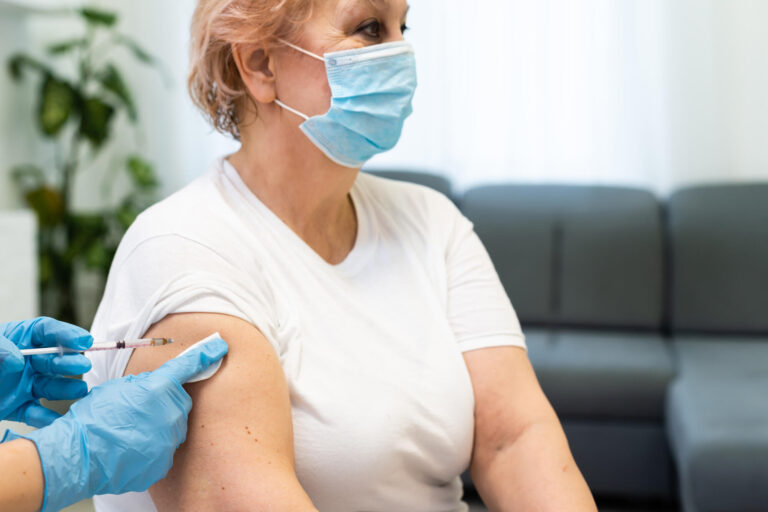
Did you know that the pneumonia diagnostics market is projected to reach $ 1,058.2 million by 2035? This shows the increasing recognition of pneumonia as a serious health threat worldwide.
Pneumonia can be a serious and sometimes fatal illness, especially for seniors. Each year, many older adults are affected by this lung infection. It can also cause dangerous complications if not managed early.
In this article, you will learn about the key steps to protect seniors from pneumonia. Continue reading to learn more.
Understand the Importance of Vaccination
Vaccination is one of the best ways to prevent pneumonia in seniors. The most common vaccines are PPV23 and PCV13. These vaccines protect against harmful bacteria that often cause pneumonia.
Seniors need pneumonia vaccine because it reduces the chance of severe infections. This also lowers the risk of being hospitalized for pneumonia-related issues. Vaccination plays a key role in maintaining better overall health.
It is important for older adults to review their vaccination status regularly. Talking with a healthcare provider ensures they are up to date on the right vaccines. Taking this step can provide lasting protection and peace of mind.
Recognize Symptoms Early
Early detection plays an important role in preventing pneumonia in seniors. Symptoms often include coughing, fever, fatigue, and shortness of breath. Seniors should pay close attention to these signs.
Sometimes, seniors mistake these symptoms for normal aging. This delay makes treatment more difficult and increases health risks. Recognizing symptoms early allows seniors to get faster care.
Chronic conditions like asthma or diabetes raise pneumonia risk. Regular check-ups help seniors and doctors track these issues closely. Healthcare providers can then offer preventive measures that match each senior’s needs.
Promote Healthy Lifestyle Choices
Adopting healthy lifestyle habits can impact pneumonia prevention in seniors. The following strategies can promote a stronger immune response:
Nutrition
A balanced diet helps strengthen the immune system. Seniors should eat fruits, vegetables, whole grains, and lean proteins. Foods with omega-3 fatty acids, like fish and walnuts, also support lung health.
Hydration
Staying hydrated keeps the lungs moist. It also helps clear mucus from the airways. Drinking enough water each day supports better breathing.
Exercise
Regular exercise improves lung capacity and strengthens the immune system. It also supports overall health in seniors. Staying active each day can make the body stronger and more resilient.
Avoid Smoking
Smoking harms lung tissue and makes the body more vulnerable to infections. Seniors should avoid smoking to protect their health. Staying away from secondhand smoke is just as important for preventing lung problems.
Create a Supportive Environment
Creating a safe and healthy living space helps prevent pneumonia in seniors. A supportive environment reduces health risks. It also promotes overall well-being.
Good ventilation in the home lowers exposure to airborne pathogens. Regular handwashing prevents the spread of germs. Avoiding crowded places during flu season also adds protection.
Seniors who live alone may need extra support. Building a social support system helps them stay connected and healthy. Friends, family, or caregivers can play an important role in this care.
Keeping Yourself and Your Loved Ones Safe From Pneumonia
Preventing pneumonia in seniors involves a thoughtful and consistent approach. Focusing on overall health and creating supportive conditions can help reduce the risks. These efforts make a real difference in protecting seniors from serious illness.
Families can strengthen their loved ones’ quality of life by encouraging preventive care. Seniors benefit when they discuss vaccination and other options with their doctors. Taking steps early ensures better health and greater peace of mind.
If you’d like to learn more, check out the rest of our website!